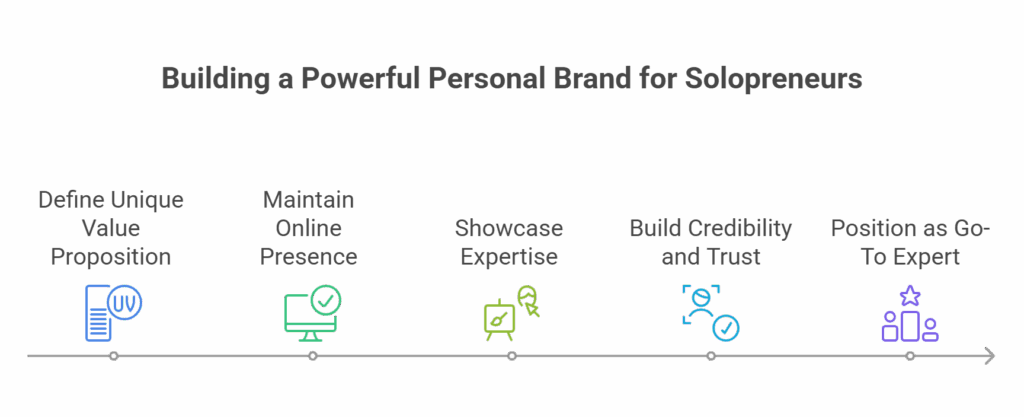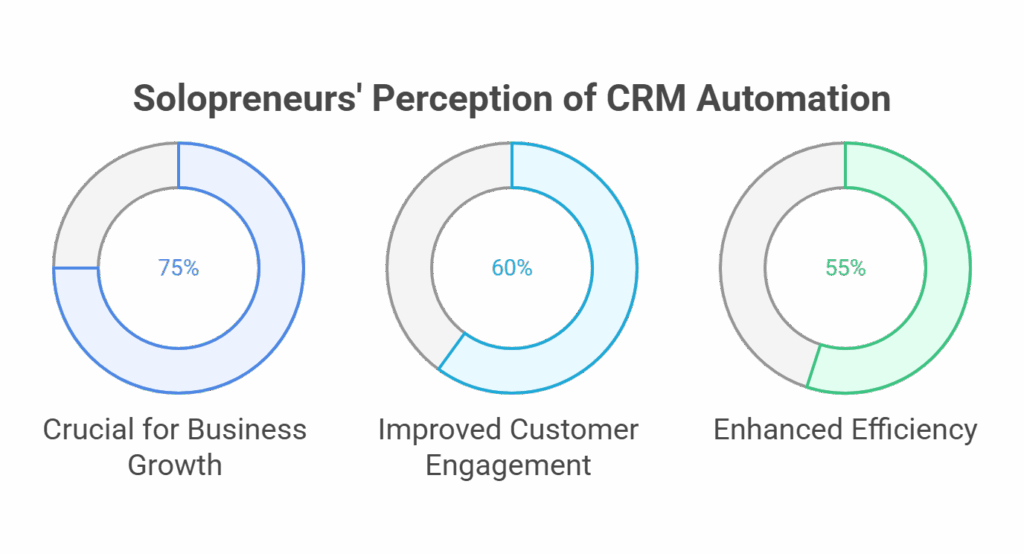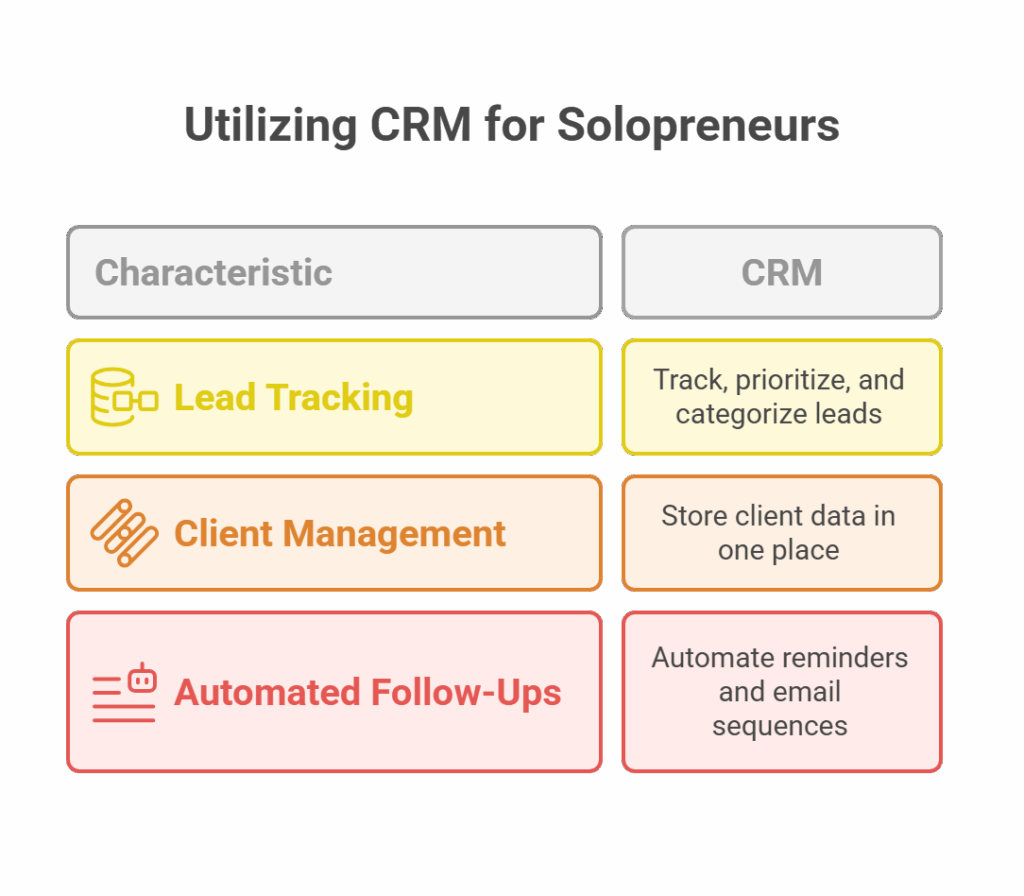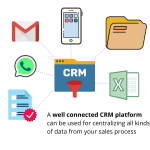In recent years, the term “solopreneur” has gained popularity. But what exactly does it mean? A successful solopreneur is someone who builds and runs their own business entirely on their own. Unlike traditional entrepreneurs, they don’t manage a team—they handle everything independently, from marketing and sales to client management and operations.
More and more people are embracing this path, and for good reason:
- The gig economy is booming, offering more solo work opportunities.
- Technology has made it easier than ever to manage a business solo.
- Many professionals crave the flexibility and autonomy that solopreneurship offers.
The rise of the successful solopreneur reflects a shift in how we view work, prioritizing independence, agility, and control over one’s career.
There’s something undeniably appealing about working independently. You have the autonomy to make decisions and the freedom to set your own schedule. You can also pursue your passion directly, making your business both meaningful and fulfilling. This is what draws many into the world of solopreneurship.
Key Habits of Successful Solopreneurs
Becoming a successful solopreneur isn’t just about having a great idea—it’s about adopting habits that support long-term growth and sustainability. Here are some essential habits to develop:
- Time Management
Prioritize important tasks and use time-blocking strategies. Digital calendars can help you stay on schedule and reduce last-minute stress. - Goal Setting
Use the SMART framework to break big ambitions into clear, actionable steps. Regular goal reviews keep your progress on track. - Staying Consistent
Consistency in your work, messaging, and client service builds trust and helps you maintain a strong professional reputation. - Learning Continuously
Stay current with evolving trends and tools. Ongoing learning boosts your adaptability—an essential trait for any successful solopreneur.
By cultivating these habits, you’ll build a solid foundation for long-term success in your solo business journey.
Building a Personal Brand

For a solopreneur, a personal brand is more than just a logo or business name. It’s your story, your values, and how clients perceive you. A strong brand sets the foundation for becoming a successful solopreneur, helping you stand out and attract the right clients.
Here’s how to build a powerful personal brand:
- Define Your Unique Value Proposition
Highlight what sets you apart—whether it’s your niche expertise, customer approach, or unique offerings. - Maintain a Consistent Online Presence
Your website and social profiles should reflect your voice and values. Post regularly and stay on-brand to build trust. - Showcase Your Expertise
Use content—like blogs, videos, or webinars—to demonstrate your knowledge and provide value to your audience.
A clear and consistent personal brand builds credibility, earns trust, and positions you as a go-to expert. It’s a key step in your journey toward becoming a successful solopreneur.
Building and Maintaining Client Relationships
As a solopreneur, your clients are your greatest asset. Building and nurturing strong relationships isn’t just beneficial—it’s essential for becoming a successful solopreneur. Loyal clients bring repeat business and valuable referrals, helping your venture grow sustainably.
Here’s how to strengthen those relationships:
- Listen Actively and Understand Needs
Pay attention to both spoken and unspoken cues. This helps you tailor your services to each client's unique expectations. - Deliver Consistent Value
Always meet or exceed expectations. Reliability builds long-term trust and sets you apart from the competition. - Seek and Apply Feedback
Ask for input and act on it. Showing clients that their voice matters increases satisfaction and loyalty. - Communicate Regularly
Stay connected through check-ins, newsletters, or helpful updates. Ongoing communication fosters a sense of partnership.
Strong relationships are the foundation of a successful solopreneur journey. When clients feel heard and valued, they return—and bring others with them.
Staying Organized and Automating Tasks
In the world of solopreneurship, staying organized and automating tasks are vital steps toward becoming a successful solopreneur. When you’re managing everything on your own, organization streamlines your workflow, while automation saves time and reduces stress.
Here’s how you can keep things efficient:
- Organizing Daily Tasks
Begin with simple to-do lists to keep track of priorities. Digital tools like Trello or Asana make it easier to plan, organize, and stay focused by keeping everything in one place. - Automating Repetitive Tasks
Use automation to reduce manual effort. A good CRM system can handle client follow-ups, reminders, lead tracking, and even email responses automatically, giving you more time to focus on growth.
A successful solopreneur embraces these systems to stay productive, reduce overwhelm, and scale sustainably, making the journey smoother and far more rewarding.
Utilizing CRM for Solopreneurs
For solopreneurs, effectively managing clients and leads can be overwhelming. That’s where a CRM for solopreneurs becomes a game-changer, offering a streamlined way to manage interactions, track leads, and automate follow-ups without burnout.
Here’s how a CRM can simplify your solo business operations:
- Lead Tracking
Never let a potential client slip through the cracks. A CRM allows you to track, prioritize, and categorize leads for better conversion. - Client Management
Store contact details, previous messages, and purchase history in one place. This helps maintain strong relationships and personalized communication. - Automated Follow-Ups
Automate tasks like reminders and email sequences to stay connected with clients, without adding more to your plate.
To make this even easier, consider building your CRM with Fuzen. It’s a no-code platform built specifically for solopreneurs—affordable, flexible, and fully customizable. With Fuzen’s CRM builder, you can automate workflows, manage contacts, and scale as you grow, all without technical skills or expensive subscriptions.
The right CRM for solopreneurs doesn’t just organize your work—it transforms how you manage clients, generate leads, and stay focused on growth.
Conclusion
Becoming a successful solopreneur means mastering key habits like time management, goal setting, and continuous learning. Building a strong personal brand and nurturing client relationships play a vital role in your long-term growth.
Staying organized through efficient workflows and automating repetitive tasks lightens your load. That’s where Fuzen stands out. It's a no-code CRM builder, AI customization, and ready-to-use CRM templates make it easier to manage leads, follow-ups, and customer data without any coding skills. You only pay for custom cost development like hosting, which keeps it budget-friendly.
Success in solopreneurship requires strategy, adaptability, and the right support system. Fuzen gives you a scalable, easy-to-maintain solution designed to grow with your business. Embrace the journey with confidence - Fuzen is here to simplify and accelerate your solo business success.

Pushkar is a seasoned SaaS entrepreneur. A graduate from IIT Bombay, Pushkar has been building and scaling SaaS / micro SaaS ventures since early 2010s. When he witnesses the struggle of non technical micro SaaS entrepreneurs first hand, he decided to build Fuzen as a nocode solution to help these micro SaaS builders.




